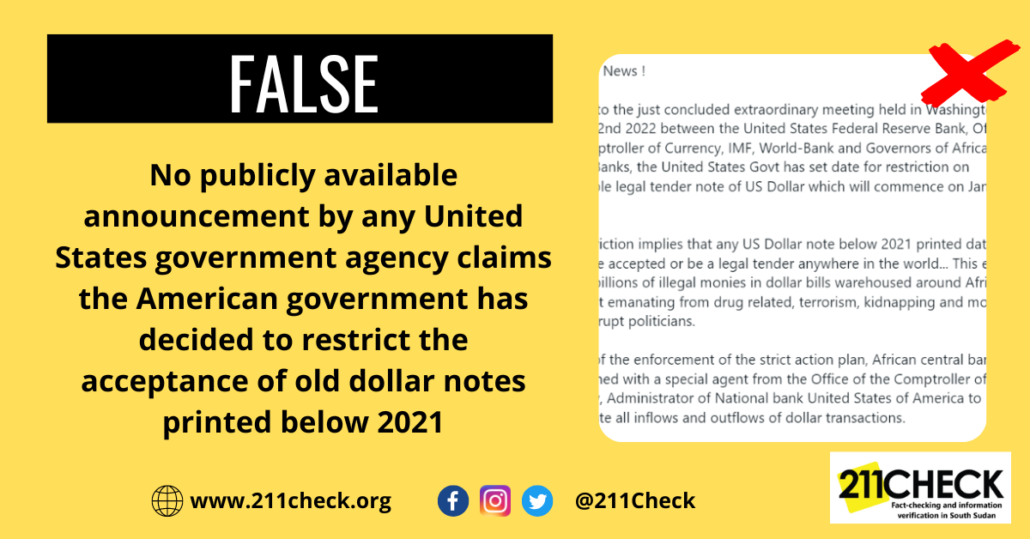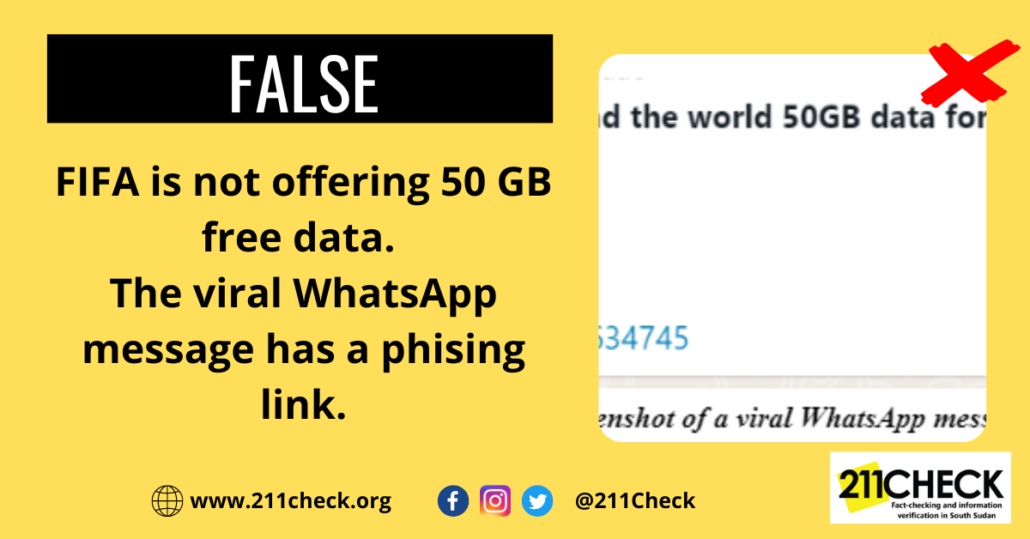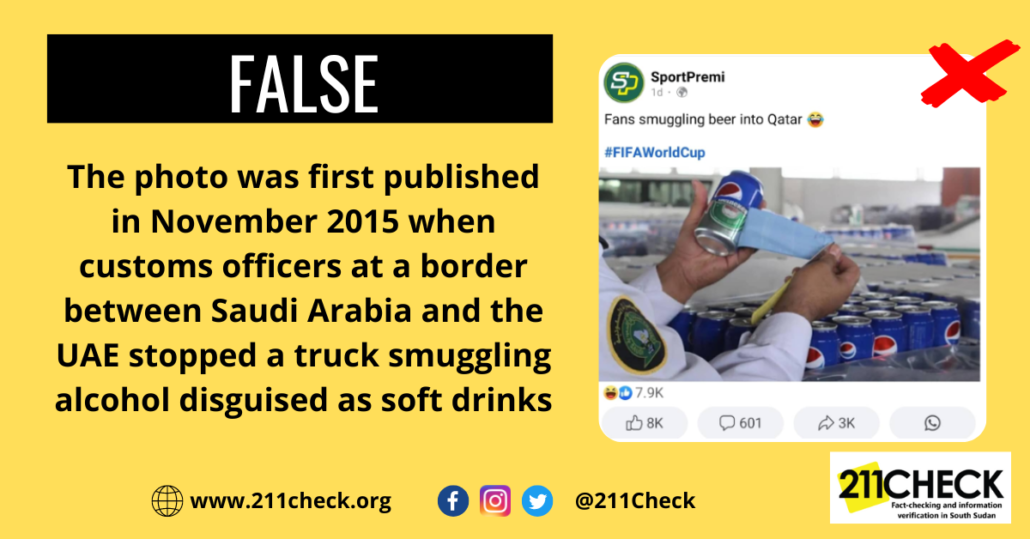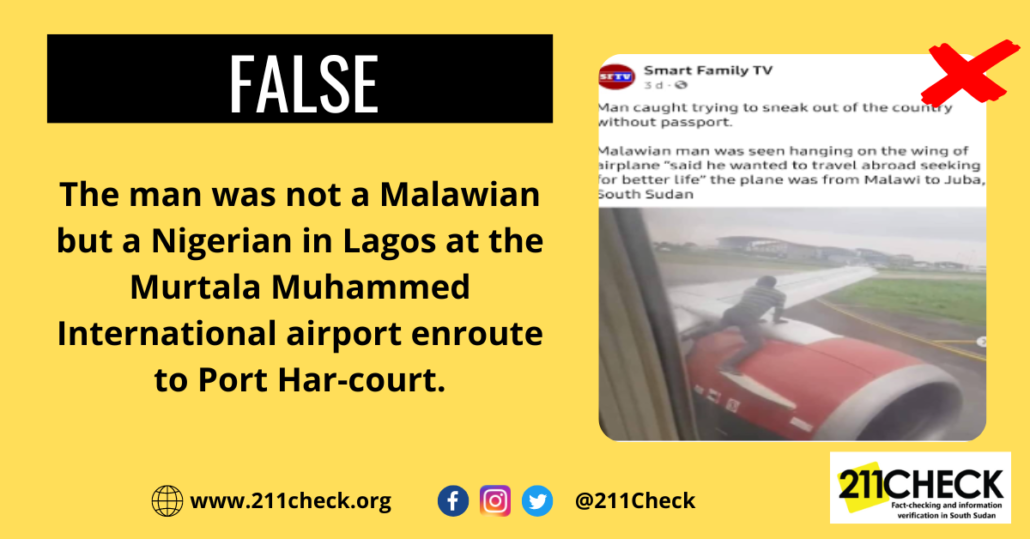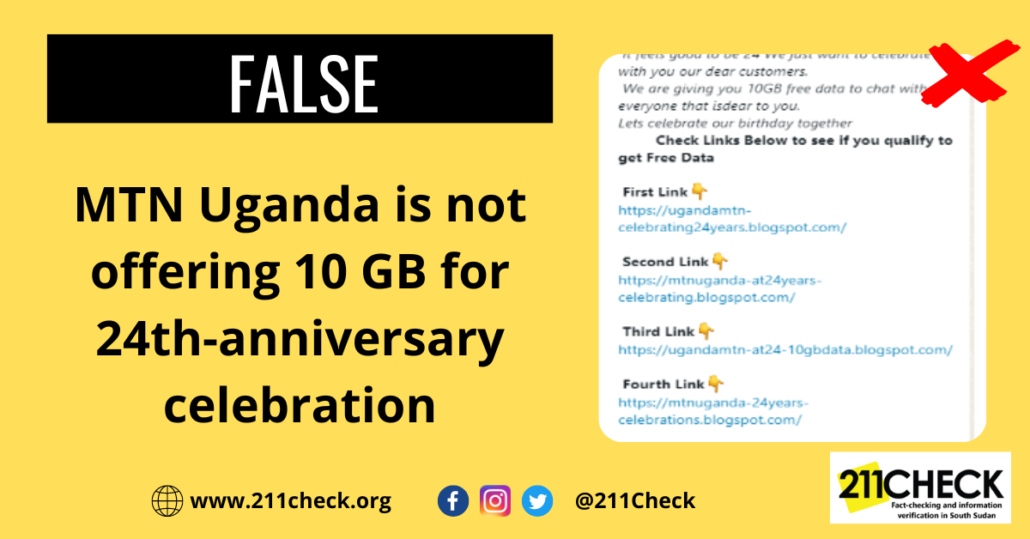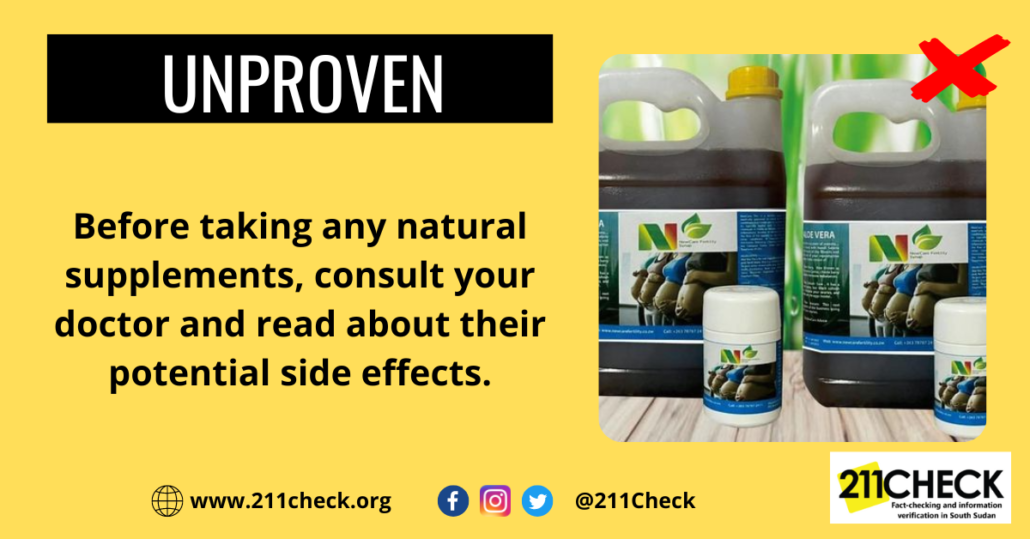Fact-check: Is the US Federal Reserve planning to purge old dollar notes in 2023? No, it’s false
No publicly available announcement by any United States government agency claims the American government has decided to restrict the acceptance of old dollar notes printed below 2021
Writer: Ochaya Jackson
US $ 100 notes
A claim shared widely among WhatsApp users that the United States government has planned to contain “any US dollar below the 2021 printed date” is false.
The move, which according to the claim, was reached on 2nd November 2022 in Washington DC, aims to get rid of the illegal billions of dollars stockpiled in the African continent originating from illicit activities relating to drugs, terrorism, kidnapping, and ill-gotten cash by politicians.
And to enforce the decision, the central banks in Africa will be assigned officials from the United States Federal Reserve to monitor the inflows and outflows of dollar transactions.
“Sequel to the just concluded extraordinary meeting held in Washington DC on Nov. 2nd 2022 between the United States Federal Reserve Bank, Office of the Comptroller of Currency, IMF, World-Bank and Governors of Africa’s Central Banks, the United States Govt has set a date for restriction on the acceptable legal tender note of US Dollar which will commence on Jan. 31st 2023”, part of the message claim reads.
“The restriction implies that any US Dollar note below 2021 printed date will no longer be accepted or be a legal tender anywhere in the world… This effort is to curb billions of illegal monies in dollar bills warehoused around the African continent emanating from drug-related, terrorism, kidnapping and money from corrupt politicians”, the claim added.
The screenshot of the widely circulating claim on the WhatsApp
211 Check established that the claim appeared to have been doctored in other circumstances, like in Nigeria, especially when the central bank of Nigeria decided in October 2022 to redesign Naira.
The false claim popped up and was forwarded widely in WhatsApp groups citing Reuters’ report that the United States was controlling the acceptance of dollars below 2021, which turned out to be false after PR Nigeria fact-checked it.
No publicly available announcement by any United States government agency claims the American government has decided to restrict the acceptance of old dollar notes printed below 2021.
However, the federal reserve only on 3rd November announced the pricing adjustment, which will be effective on 3rd January 2023; for payment services it provides to depository institutions like clearing of checks, ACH transactions, wholesale payment and settlement services, according to a press release posted on its website.
And the fact sheet from the US federal reserve website indicates that “all U.S. currency remains legal tender, regardless of when it was issued”.
Conclusion
The claim that the US government has planned to restrict the acceptance of old dollar notes printed below 2021 is false.
This fact check was published by 211 Check with support from Code for Africa’s PesaCheck and the African Fact-Checking Alliance.

